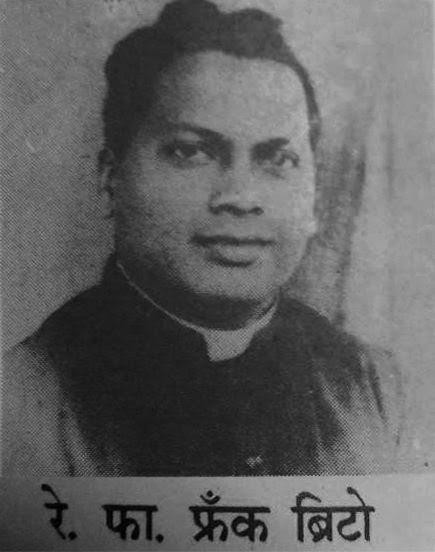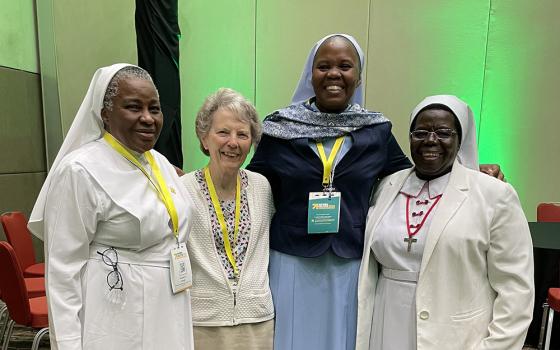
(Unsplash/Frantisek Duris)
Many years ago, I went to a priest's retirement center in Mumbai, to visit my cousin. As I entered the center, I saw a brochure titled "Mother Those Who Fathered You." I picked up the brochure, brought it home and was stretching my brain to understand the concept of "mothering those who fathered."
A month ago, as I was attending that cousin's funeral, I had a flashback to that brochure, and suddenly the meaning of that title dawned on me.
I presumed the title of the brochure was intended to get monetary help to run the house. and also, to express gratitude toward the fathers/priests. I found it very creative and emotionally enticing.
My memories went back to 1970, back to when I was attending school at St. Elizabeth convent high school, run by the Franciscan Hospitaller Sisters of the Immaculate Conception. I recalled my interaction with the school principal, Sr. Angeline Anna Marques, a woman of "iron hand in velvet gloves." As the principal, she used to come around during our lunch recess, spot the pupils who had finished their lunch in just a few minutes, and punish them by sending them to the chapel to say a rosary.
When the school recess was over and all the sisters of her community were back to their classrooms, she would come through the chapel door for her lunch. When we asked whether we could go to the classroom, she would say, "No, I will be back in ten minutes." After 10 minutes she would come with a kitchen lady with a food tray. Giving each one of us vegetables wrapped in a chapati, a boiled egg, and a banana, she would say, "Children, I knew you were telling me lies about having your lunch quickly, but you did not bring your lunch. Now eat slowly and when you finish go to the classroom."
"A world that does not nurture its weakest does not know God the birthing mother," says Joan Chittister in her book Heart of Flesh.
This gesture of Sister Angeline — of mothering the hungry pupils with creative and courageous acts of mercy, without humiliating them in public — has embedded itself in my heart as a model of a missionary without borders. I am confident in saying that she not only mothered me but fathered me too, with acts of dignity and honor.
For me mothering and fathering is the art of emptying out of self for the growth of another being.
Though I am not a biological mother, I learned the ways of mothering from Sister Angeline, and the ways of fathering from Fr. Frank Britto, a diocesan priest. Both are in heaven and my heart remembers them with wonderful nurturing memories. As a parish priest, Fr. Frank Britto used to give us youth huge opportunities to tap into our potential.

Fr. Frank Britto (Courtesy of Nap Dias)
Sometimes we would be on the parish premises until late night, practicing choir, dramas, and plays. Whenever he noticed us hungry, he would offer us dry coconut with jaggery (cane sugar) and we would forget our hunger for food. He would not leave us by ourselves, but wait until every boy and a girl had left the premises. Sometimes he would ask the older boys to take the minor ones safely to their homes on a bicycle. Our parish was a home away from home, with a huge campus in which to play. I remember him walking on the church grounds with a rosary in one hand and with his other hand under the scapular-type cassock.
Mothering and fathering in an era that embellishes violence and legitimizes command is not an easy task, and they taught me to see it through multiple perspectives.
Mothering and fathering are not pampering or dominating, but empowering through one's life example and making others less dependent on us.
To mother or father should be done without imposing alien ways of upbringing, and by simply releasing each other's potentials to grow into fullness, and preparing them for the community of life on planet Mother Earth.
Too much mothering can also destroy a person by making him/her unfit to shoulder responsibility. Both Sister Angeline and Father Frank taught their pupils that mothering and fathering is not limited to the biological sphere. Their lives were so exemplary that during their tenure in the school and parish there was a sudden increase in religious vocations, including to the priesthood.
They created such a bond with us that whenever we who were called to religious life came for the holidays, our first visit and gathering would be in the church after the Eucharist.
Advertisement
They were timeless teachers and most influential mentors in our lives. They showed us lasting insights with a legacy that is valuable and priceless. Their guidance led us on the right path with their timely instructions, support and encouragement, to achieve whatever we wanted to achieve, fostering our intellectual growth and full potential.
Their home visits to every pupil and to the children studying the catechism helped us develop social-mindedness. As spiritual parents, they recognized our strengths and weaknesses and accompanied us to enhance the strengths and overcome the weaknesses. They were friendly with us, provided us with solid Catholic faith formation, protected us from malnourishment, inculcated in us missionary leadership, taught us with their life examples, helped us to grow in social consciousness, and encouraged us to be daring in the face of difficult circumstances.
Fr. Frank Britto lived what he believed: Priesthood should be self-sacrifice, and rightly he was looked up to as a stalwart of the missions.
As many have said, the "father and mother are two important pillars of a family, and children need both of them while they grow up." So it was at my school and parish, where I grew under the guidance of Sr. Angeline Anna Marques and Fr. Frank Britto, who brought us up to be healthy adult human beings.








